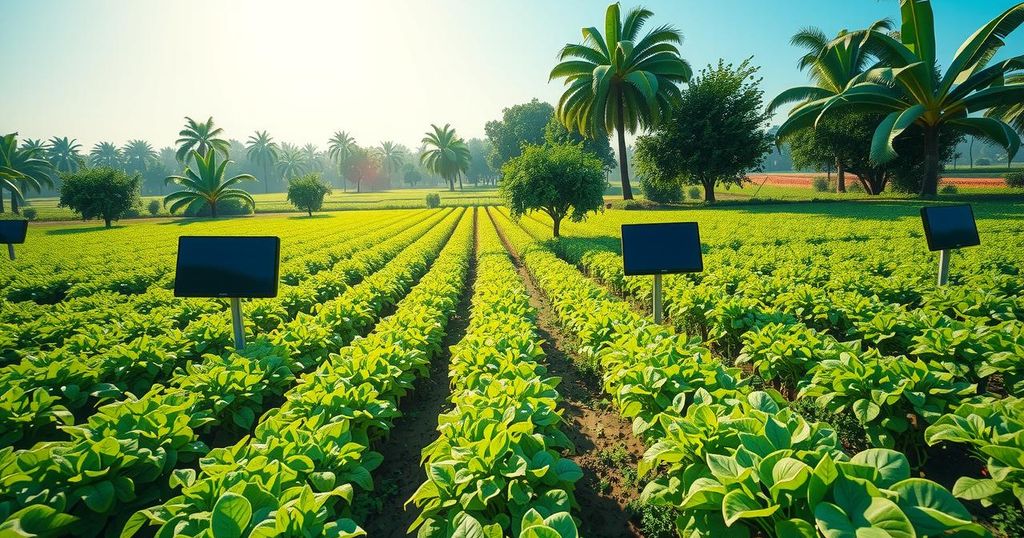Farmers in Nigeria are leveraging artificial intelligence to enhance agricultural productivity, with significant results in crop yields for individuals like Dandam Nangor. Companies like Green Eden and Anatsor are providing solutions that address climate-related challenges, while also connecting rural communities to technological advancements. Despite the promise of these innovations, challenges such as high costs and infrastructural issues remain prevalent.
In Nigeria, farmers like Dandam Nangor are utilizing artificial intelligence to modernize agricultural practices. With simple smartphone applications, they can monitor greenhouse temperatures, soil acidity, and irrigation needs, significantly improving crop yields. Nangor, an IT analyst, reports a 20% increase in pepper production, demonstrating the potential of agri-tech solutions amid growing agricultural challenges due to climate change.
Agriculture in Nigeria is crucial, contributing approximately 20% to the nation’s GDP. However, erratic rainfall patterns caused by climate change have severely impacted smallholder farmers. As Stephanie Meltus, founder of Green Eden, notes, addressing weather-related challenges is essential to fostering sustainable agricultural practices in the country.
Green Eden aims to connect Nigeria’s dynamic tech industry with its rural agricultural communities, having already implemented AI technology in over 70 farms. Jos, the central city, is increasingly recognized as an agri-tech hub. Mercy Atsuku, a chicken farmer, shared her positive experience with monitoring technology from a local startup, Anatsor, which has dramatically reduced poultry mortality rates.
However, although the technology improves farming efficiency, it remains expensive for many farmers. As agronomy professor Nuhu Adamu Gworgwor highlights, climate change and urbanization are driving many Nigerians from agriculture to urban centers, threatening the sector’s future. Critics argue that while innovation enhances productivity, it may overlook fundamental issues such as land degradation and inadequate infrastructure.
The integration of artificial intelligence in Nigerian agriculture is offering significant advantages, particularly for smallholder farmers facing the challenges of climate change. However, while technology like that provided by Green Eden and Anatsor shows promise, it is crucial to address the economic barriers and infrastructural issues that could limit its accessibility and effectiveness across the agricultural landscape. Sustainable approaches, alongside technological advancements, are necessary to ensure a resilient agricultural future in Nigeria.
Original Source: www.thehindu.com






